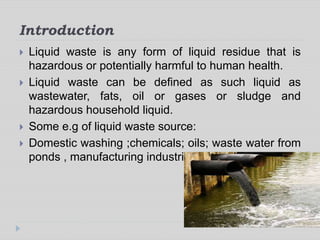Some Known Details About Reclaim Waste
Some Known Details About Reclaim Waste
Blog Article
Everything about Reclaim Waste
Table of ContentsThe Facts About Reclaim Waste RevealedWhat Does Reclaim Waste Mean?Not known Facts About Reclaim WasteReclaim Waste Fundamentals ExplainedReclaim Waste Things To Know Before You Buy
Residential sewer waste refers to the waste and items from a household septic tank. The appropriate administration and disposal of domestic sewer waste call for fluid waste to be moved to a sewer treatment plant where the correct approaches and equipment are applied to detoxify and dispose of waste.
Industrial waste commonly consists of prospective risks, such as combustible products or a mix of liquid and solid waste items, and needs an advanced and comprehensive disposal procedure. The disposal of industrial waste usually includes the purification of waste before transportation to ensure secure and correct disposal. Industrial waste is created from byproducts and drainage of industrial procedures and manufacturing.
This type of waste can not utilize the same sewer monitoring transport or processes as septic or commercial liquids. The hazardous waste administration procedure calls for the examination and screening of liquid waste before it goes through the disposal procedure (liquid waste removal). Drainage waste is the liquid waste that originates from overflow and excess stormwater in very booming locations or cities
Overflow waste can trigger contamination and flooding if not taken care of correctly. Guaranteeing appropriate waste administration can prevent catastrophes and minimize ecological damage.
The Best Strategy To Use For Reclaim Waste
Get in touch with PROS Providers today to learn more about our waste management and disposal services and the appropriate ways to look after the liquid waste you produce.
(https://filesharingtalk.com/members/604691-reclaimwaste1)Do you know what takes place to your water when you end, flush the commode or drain pipes the washing maker? No? Well, it's worth recognizing. This supposed 'wastewater' is not just a crucial resource but, after therapy, will certainly be released to our land, waterways or the sea. Made use of water from bathrooms, showers, baths, kitchen sinks, laundries and commercial processes is understood as wastewater.

water utilized to cool down machinery or tidy plant and equipment). Stormwater, a type of wastewater, is runoff that flows from farming and city areas such as roofs, parks, yards, roads, paths and rain gutters into stormwater drains, after rain. Stormwater flows neglected directly to local creeks or rivers, ultimately reaching the ocean.
An Unbiased View of Reclaim Waste
In Queensland, the majority of wastewater is treated at sewage treatment plants. Wastewater is moved from domestic or commercial sites with a system of sewage systems and pump stations, referred to as sewage reticulation, to a sewer therapy plant. Regional federal governments develop, maintain and run most sewer treatment plants. Operators are accredited under the Environmental Protection Act 1994 to discharge cured wastewater at an appropriate ecological requirement into rivers.
The Division of Natural Resources suggests city governments concerning managing, operating and maintaining sewerage systems and treatment plants. In unsewered areas, local governments may need homeowners to set up private or family sewer therapy systems to deal with domestic wastewater from commodes, kitchens, shower rooms and laundries. The Division of Natural Resources authorizes using family systems when they are proven to be reliable.
In some brand-new neighborhoods, therapy of some stormwater to get rid of litter, sand and gravel has begun using gross contaminant catches. Wastewater treatment happens in 4 stages: Eliminates solid matter.
Uses tiny living microorganisms knows as micro-organisms to break down and eliminate staying liquified wastes and fine bits. Micro-organisms and wastes are incorporated in the sludge.
Facts About Reclaim Waste Uncovered
Nutrient removal is not readily available whatsoever sewage therapy plants because it calls for pricey specialist tools. It is becoming more typical in Queensland. Clear fluid effluent generated after therapy may still have disease-causing micro-organisms. If this effluent is launched right into waterways such as rivers or the sea, the micro-organisms will eventually die out.

This generally suggests wastewater needs to be treated or impurities gotten rid of prior to it can be released to rivers. A lot of wastewater streams into the sewerage system. Under the Act, my review here regional federal governments administer authorizations and permits for eco appropriate tasks (ERAs) including wastewater launches that could have a neighborhood effect. The department administers approvals and licences to Periods including wastewater launches that might have a regional or statewide impact.
The Ultimate Guide To Reclaim Waste
Or else, examples are considered lab analysis. Usually lots of tests are required to develop the degrees of each of the various contaminants such as oils, hefty metals and pesticides in water. Tracking provides valid details concerning water quality and can verify that permit conditions are being met. The info acquired through surveillance provides the basis for making water quality decisions.
Report this page